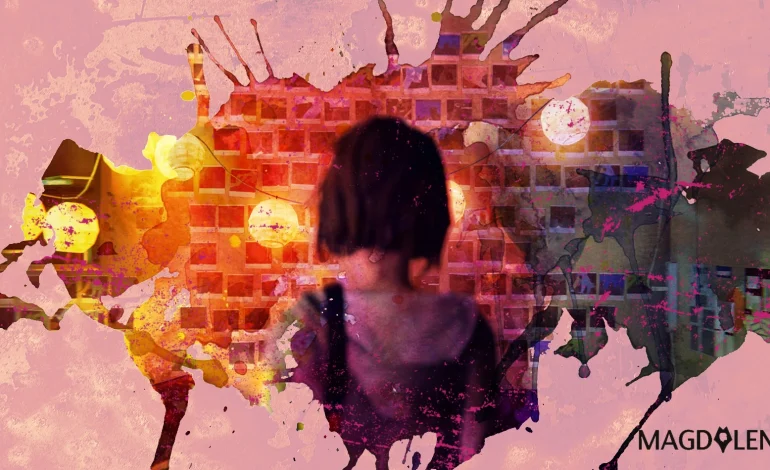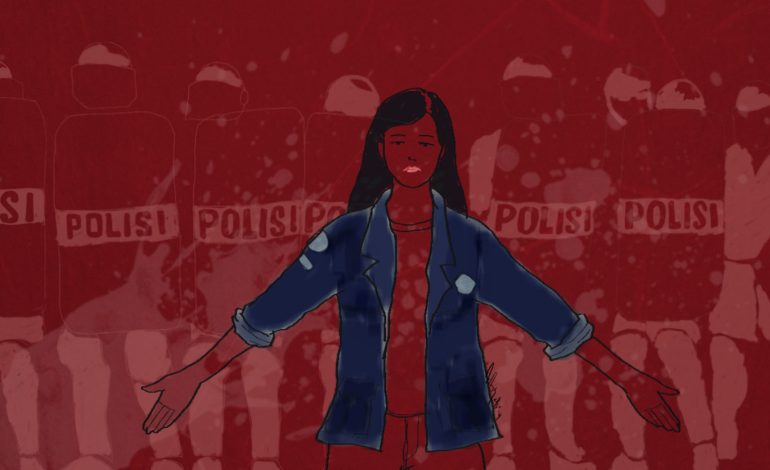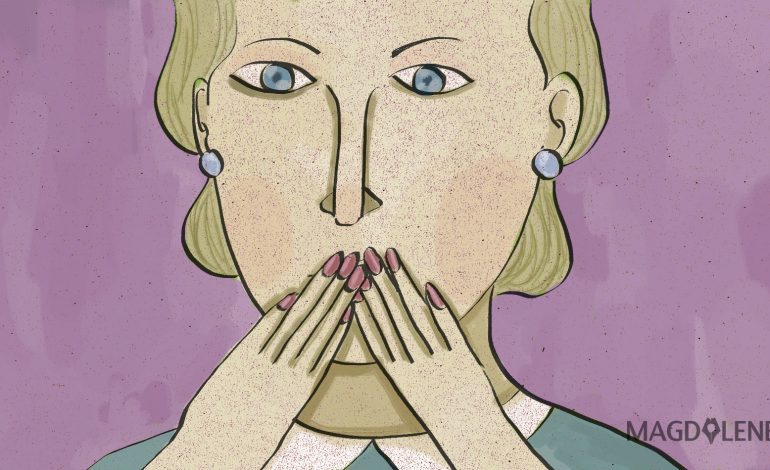Bipolar: A Woman’s Journey In and Out of Mania and Depression

My name is Binky Bee, and I am Bipolar. You’d think it’d be the end of the world as I know it, but it’s not, and I feel fine.
I was 22 when I was diagnosed and things were different back then. Now we know about stars like Carrie Fisher from Star Wars and the other Carrie the CIA agent from the TV show Homeland who uses her bipolar creativity to deal with terrorist baddies.
Back then in Indonesia, hardly anyone understood what it was and we were just thrown into the category of “crazy”.
It’s just not thought of as cool in Indonesia to be mentally ill, especially for a woman. A lot of people think it means roaming the streets rag-clad and naked, drooling on car windows.
Still, I wouldn’t trade my bipolar disorder for the world. It has forced me to truly ask what I want and can do, because I can’t do what society dictates.

They used to call it manic depression, but for me the diagnosis was bipolar II disorder. It makes my moods swing from super highs to super lows, sometimes over months, like, so low you can’t get up in the morning and you sleep for days. When I’m manic, or high, I have tons of energy and do crazy things like spend like an Arabian princess and end up broke and in debt. Famous bipolar people have written symphonies, led nations, and directed classic movies. Others have just curled up into a ball and killed themselves.
I suspect I’d been bipolar since before puberty as I was always a problem child. I could never concentrate, and listening to the teachers with all the voices in my head was torture.I skipped school for three months in my senior year because I couldn’t sit still. At first, my symptoms were dismissed as teenage rebellion. Then I got too old and my parents realized something was wrong and sent me to a psychiatrist.
I did some dark, dumb and hilarious things in my pre-diagnosis, manic days. Once in Sydney I nearly died from alcohol poisoning after drinking 22 shots of every liquor known to man. Then I nearly jumped in front of a tram because my boyfriend of one month decided I was too crazy and wanted to break up.
I’m still ashamed because I hurt the people I love, especially my Mom and sister. I ran up my mom’s credit card and she had to bail me out and pay the bills. I embezzled money from my sister’s savings to spend on booze and partying in nightclubs.
I’d tell wild, fantastical, and untrue stories about myself. Eventually the truth would emerge and I’d lose my friends because no one wants to befriend a liar. I just couldn’t help myself.
Then for six long years from about 22 to 28, I rode the vicious cycle of normalcy-mania-depression. I was in denial, you see; I didn’t want to accept I was a freak, weird, ill, needed help. The medications, a multi-pill cocktail of anti-psychotics and anti-depressants, would make me feel better. Then I’d ditch them and the mania would start.
It seemed harmless at first. I’d have fantastic ideas and crank out a 300-plus page novel in just two weeks, working around the clock. I’d be the fun crazy drunk chick at the party, a riot, who everyone loved, until I’d get restless, agitated and paranoid, and turn into the “chick has issues”, crazy chick.
I would stop eating – at one point I got so skinny I only weighed 37kg, no joke – and sleeping, because come on, who has time to eat or sleep when your mind is racing at, like, 100 km per hour? It just kept escalating until I crashed and burned.
And when the crash happens it’s the worst day of your life times ten. For me, it’s like being on a roller coaster that goes off the rails at the top and you find yourself free-falling upside down. I’d sleep for two or three days straight. One time my sister got so freaked out, she stuck a cotton bud up my nose just to make sure I wasn’t dead. I’d cry for weeks for no reason. Couldn’t eat, couldn’t work, couldn’t do anything.
Suicidal thoughts crept in and a little voice inside would say “maybe you should just give up.”
One day aged 28, I’d had enough. So I dragged myself out of bed and asked my mom to order my meds again. After six years of not wanting to face the truth, I finally learned to be honest with myself. I wasn’t like other people. I wasn’t normal. I needed help to navigate life. I needed medications and I needed therapy. And it was okay.
My life didn’t magically get better, because getting to know oneself isn’t easy. It requires brutal, radical honesty. You have to see yourself as who you are, not as who you think you could be or wish you were. It’s okay to aspire to be someone great, but the first question is: who are you right now?
I didn’t want a normal job or career; working in an office depresses the hell out of me, so I work at home as a freelance writer and I have the time to pursue my passions like write about TV and take care of my cats.
I don’t want to get married. I know that you’re supposed to grow up, fall in love and get married but are you really, now? Some of us just can’t handle it.
And that’s what I learned from being bipolar. Knowing yourself means knowing what you can and can’t handle. That’s the first thing I learned about managing my illness. That’s the tricky part, though, isn’t it? We tend to lie to ourselves about it.
Being bipolar can be lonely. I really only have one or two friends — because most people keep expecting me to just “snap out of it”. My last romantic relationship was over 10 years ago and I still don’t know if I loved him for real or if it was just exaggerated emotions that came from being bipolar. Sometimes I want a love like in the TV shows (the classy ones), and have a boyfriend to call my own.
Embracing and owning my condition has slowly taken me back to mental stability. Medications and therapy have helped and kept the rare manic and depressive cycles at bay. I can function in society. “Next generation” meds, new and improved, with fewer side effects, also help.
Having a mental illness helps me to be free, to live as I want to live and not as society dictates me to live. Having that kind of freedom as an Indonesian woman is priceless.
After all, didn’t Oscar Wilde say, “To love oneself is the beginning of a lifelong romance”? Whenever I feel a bit lonely and isolated, I always remind myself that I already have a lifelong romance.
Binky Bee is a freelance copywriter, author and self-professed TV junkie. When she’s not writing or watching TV, she’s usually taking care of her four cats and taking a nap. She lives in Jakarta but dreams of moving to Montreal so she can get universal healthcare.






















